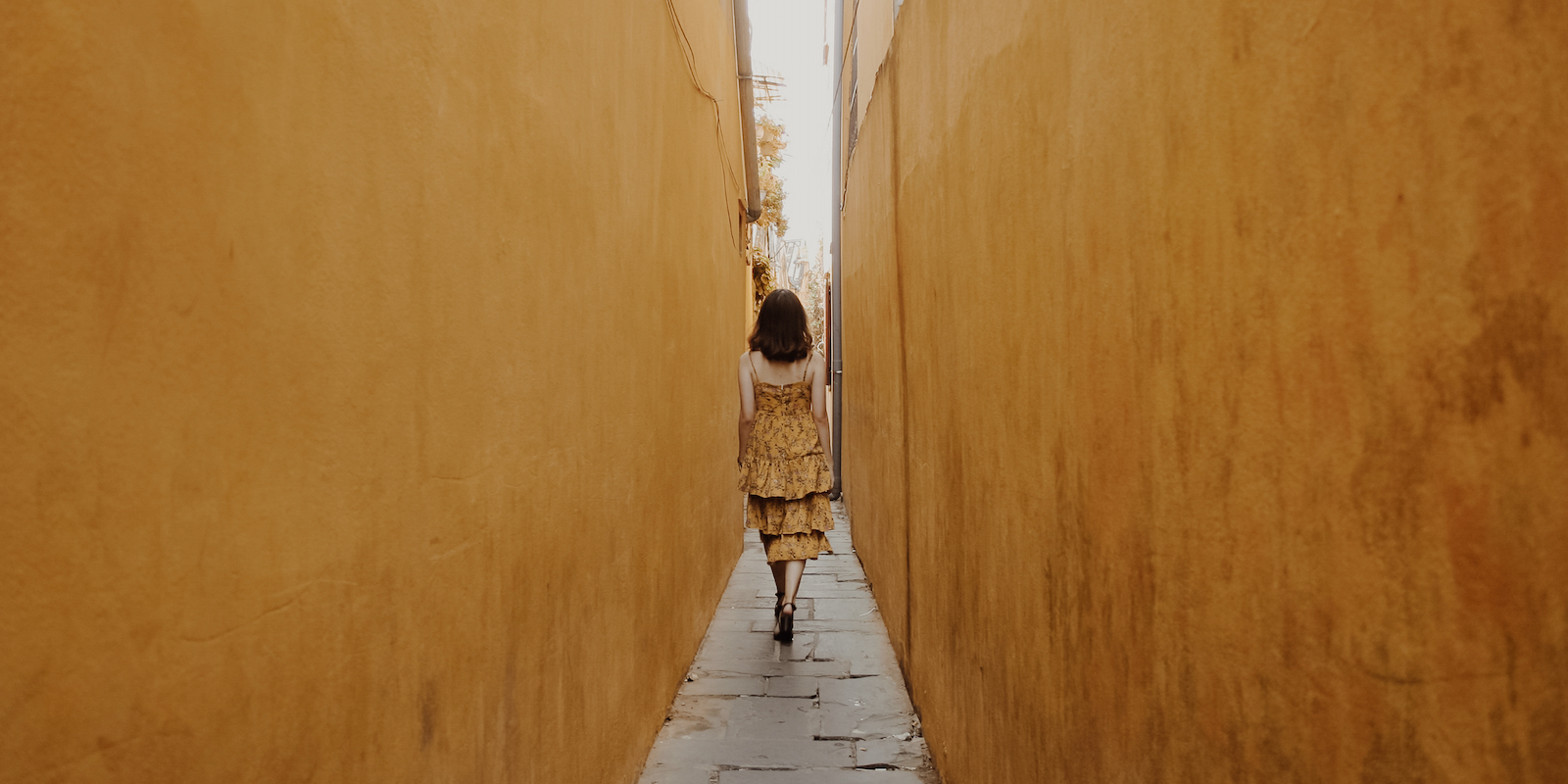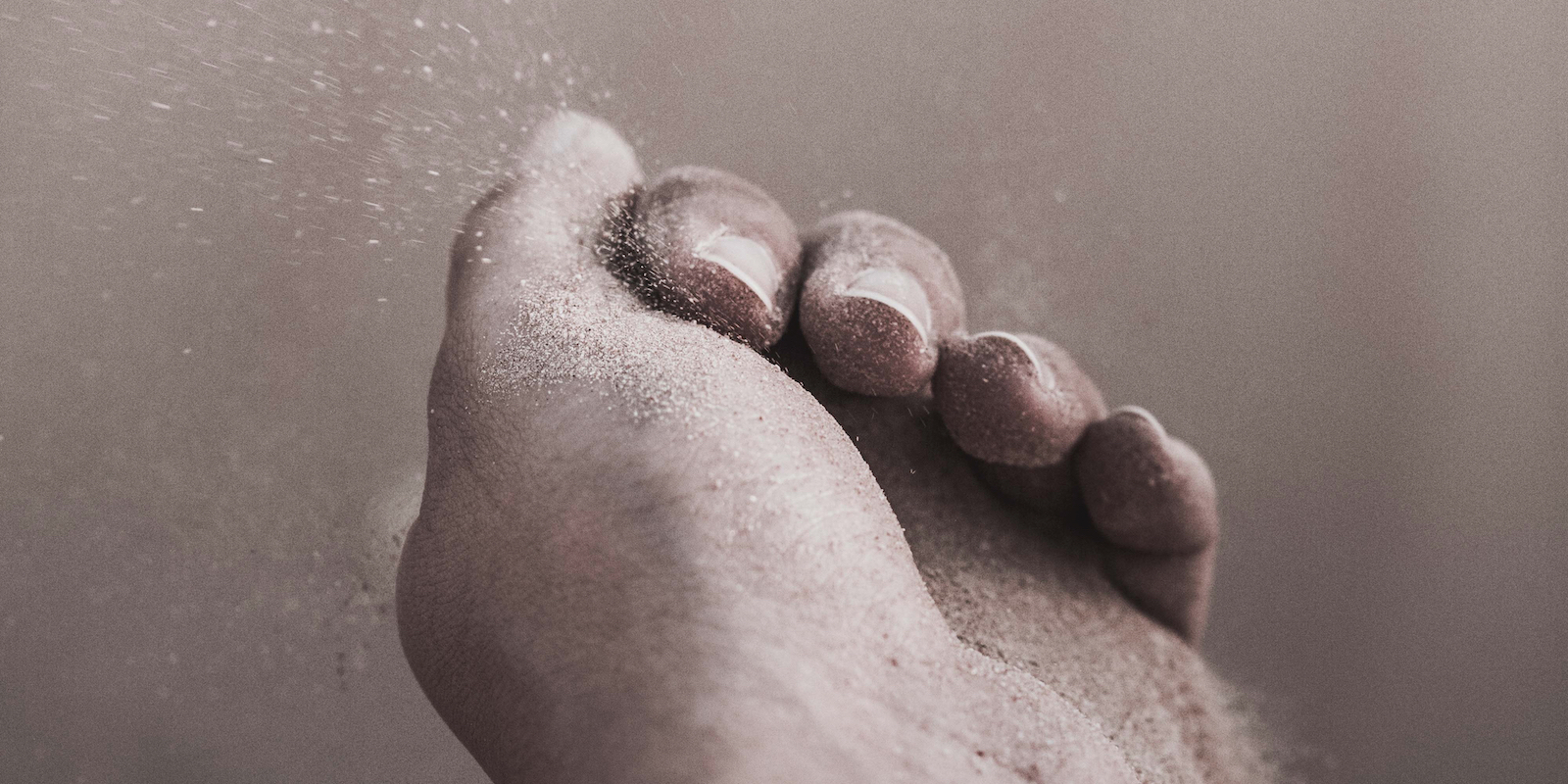Explore the phenomenon of time famine and learn how meditation helps to make time feel more abundant. At the end of this article you can also find a special collection of guided meditations for creating more time.
Insatiably Filling Time
We live in a society that’s addicted to movement and has increasingly prioritized doing over being. We’ve confused productivity with self-worth, which makes the choice to rest, sit and be still one that’s often fraught with guilt. Our propensity toward distraction may not necessarily be greater for us than for generations past, but technology and the devices we carry in our pockets have given us a convenient way to feed our addiction to busy-ness.
Each time we mindlessly reach for our phones to check email or scroll through our social feed, we fool ourselves into thinking we’re doing something productive and therefore worthwhile.
When we’re pressed for time, everything seems urgent. Stress compounds when we react as if everything needs an immediate reply, as if everything is a potential crisis. We’re clamoring for success within a reward system that perpetuates the idea that more is always more, and the more we do, the more value we have. Studies show this crisis mentality, and the reward system that underlies it, reinforces the concept of time famine. We end up accomplishing less, because we’re too busy being busy.
Filling our days with distraction, doing and movement leads to a feeling of time poverty. We’ve become insatiable consumers of time. At the same time we fantasize about a life of leisure, which is in direct conflict with the time scarcity model we’ve created. This internal conflict leads to feelings of stress, or for some, a feeling there must be a better way.
Read more: Explore the physical and mental dangers of constantly being too busy.
The Myth Of Time Famine
Although we feel busier than ever, it appears it’s not true. Thus the good and bad news about time famine is that it’s mainly in our heads. When considering both paid and unpaid work, studies show those in developed countries clock fewer work hours than they did in the 1980s.
Time famine is less of a reality and more of a feeling. As the Buddha alluded to in the second noble truth, we are the cause of our own discontent. By glorifying busyness and behaving in the world as though there’s never enough time, we create the feeling of never having enough time.
The following bad habits keep us trapped in a time-filling cycle…
- Fear Of Missing Out (FOMO): Thanks to social media we have unlimited access to images of others living their best lives. We’re constantly aware of the things we could be doing that we’re not.
- Lack of Work Boundaries: Work life increasingly overlaps with home life, especially for those who work from home. Technology makes it possible for us to never leave the office, and we don’t.
- Reactivity to Stress: When we’re busy and feeling under pressure, we make poor decisions that lead to worse performance, often prioritizing further increase in busyness versus actual productivity.
- Addiction to Technology: When we do have a chance to rest, we reach for our smartphones instead. This habit traps us in a cycle of doing, and the mind never gets to be still. Learn how to overcome smartphone addiction and digital stress with mindfulness in this article.
We each have the same 24 hours in a day, and yet not all of us feel as though it’s not enough. It’s possible to live in this world and recognize time as abundant. The feeling of time famine isn’t the result of too little time, it’s the result of filling our time with activities that aren’t in alignment with our goals.
Meditation For More Time
The key to negating time famine is awareness. Awareness allows us to clearly see how we’re using our time.
Mindfulness helps us to recognize FOMO, set boundaries with our employer, become less reactive to stress, and let go of our technology addiction. Ultimately, mindfulness and meditation align us with the truth, and it’s just not true that there isn’t enough time.
When feeling busy, overwhelmed, and starved for time, it seems crazy the solution might entail adding one more thing to our list of daily tasks. But science shows when we add meditation to our daily schedule, time becomes more abundant.
Read more: Explore internal and external tools that help to maintain awareness over your browsing behavior in a media rich world.
Meditation And Time Perception
Meditation alters our perception of time by deepening awareness of our internal state. Curious as to why most meditators report a sense of timelessness during their meditations, researchers studied meditation’s effects on the perception of time. They found the more focused meditators were on the present moment, the more time slowed down for them, and the more they overestimated long intervals of time.
Overestimating the duration of time is common in those who meditate. A more recent study sought to compare mindfulness meditation with concentration meditation and found the same results. The more one focuses attention on the present moment, the more one’s subjective experience of time slows down. These effects take place regardless of the type of meditation.
Researchers hypothesize this unique experience of time results from a meditator’s keen awareness of their internal state and their perception of an outside notion of time. Those who meditate are better able to discern between ‘self-duration,’ awareness of an internal state of time, and “world-duration,’ a sense of external time. Self-duration is related to awareness of the embodied self. Meditation helps us let go of the embodied self that’s separate and self-existent and in the process, alters our subjective internal experience of time.
When trying to fit meditation into the daily schedule, oftentimes the question arises if there is a best time to meditate. Read more.
Meditation And Awe
A simpler explanation is those who are happier and less stressed perceive time differently. Meditators report reduced feelings of anxiety and increased feelings of happiness. When we’re not stressed, we perceive time differently. Meditation also supports more frequent experiences of awe, resulting in a more relaxed perception of time.
Participants in a 2012 study who reported greater feelings of awe reported feeling as though they had more time in each day. They were less impatient, and experienced greater life satisfaction.
When we experience awe we become fully integrated with the present moment and we lose our sense of self. Present-moment awareness and a greater sense of connection makes time feel expansive and abundant.
Read more: In moments of depression, stress or anxiety, when we take the time to pause and notice all that’s going well for us, we guide our minds to a more positive state of being. Learn how to start living a life of gratitude.
Integrating Meditation For Time Abundance
There’s a well-known Zen joke that says everyone should meditate for 30 minutes a day. Those who feel they don’t have the time should meditate for one hour. It’s funny, but true. Intentionally inserting meditation into our otherwise busy days plants a seed that tells our subconscious we’re not actually that busy. Repeating this act daily causes the seed to grow. We begin to feel time is more abundant. With abundant time, we might expand our 5 minutes of meditation to 10 or 15. The cycle then continues.
When we act as though we have more time we feel like we have more time. Acting as someone who’s frantic and busy all the time equally defines who we are. Meditation helps us realize this, and mindfulness helps us choose who we’d like to be.
In addition to meditation, practice less doing and more being by incorporating the following into your day:
- Don’t hit the ground running. Take time in the morning to stretch out in bed, enjoy your coffee or exercise. Wait as long as possible before looking at your phone.
- Take breaks during the day for things you love to do. Go for a walk, enjoy a slow meal, and seek opportunities to experience awe.
- Practice saying things like, “Sorry, I’m not available” or “I’d love to but I’ve got too much on my plate right now.” Choose your activities with intention, do they align with your goals?
If you have two days off, combine all your errands into 1 day. With the other, take a sacred day of rest. Gift yourself a retreat at home as often as you can.
We have created this special playlist which features soothing guided meditations that allow you to not only take time for yourself, but also experience time in its full abundance.
- The River of Time Linda Hall 21:08
- A Brief Moment in Time Peacebeam - Beginning Bright 5:08
- Space And Time Franko Heke 20:00
- Allow Yourself The Time To Pause Dr Lauren Tober 3:08
- Where is the time for Yoga & Meditation? Sadhguru 6:58
- Creating More Time Chrissy Ortner 14:40
- Meditation For Mothers: Create Time And Space FINJA 18:32
- Timeless Presence Stephan Pende Wormland
- Take Time For Yourself Eva Peters 8:24
- The Speed Of Time Tom Evans 5:44
- You Are Timeless | Discover The Power Of Now Dhyanse Meditation 51:32
- Empowering Your Relationship With Time Mahé Bastien 24:55
The End Of Time (For Us)
By keeping ourselves busy all the time, we perpetuate the false belief that if only we work hard enough, there will come a time when we’ll no longer be busy. But the to-do list never ends. What will end someday is our time in this human body. If we cannot learn to claim contentment, relaxation, peace, and happiness right now, when will we?
There is indeed urgency. It’s not urgent we finish our task list, or reply to every email, it’s urgent that we reclaim the time we have here on earth, and devote more of it to the things that promote wellbeing. Meditating daily builds our awareness and helps us tune in to what we wish most from this life. Do we desire to be busy, awaiting a future downtime that will never come? Or would we rather spend our time in the present moment? Because right here and now is the only place where happiness, joy and contentment exists.







